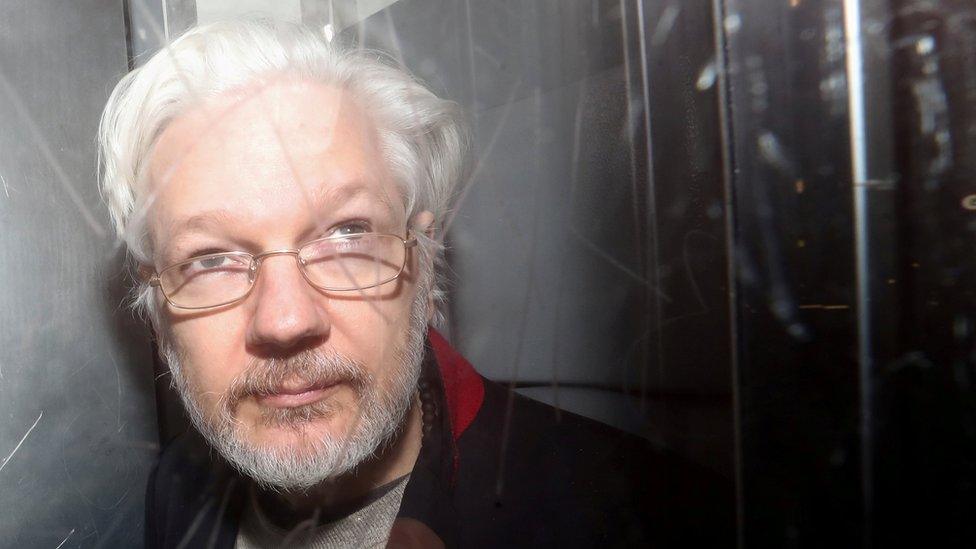US election 2020: Sanders 'told of Russian effort to aid his campaign'
- Published
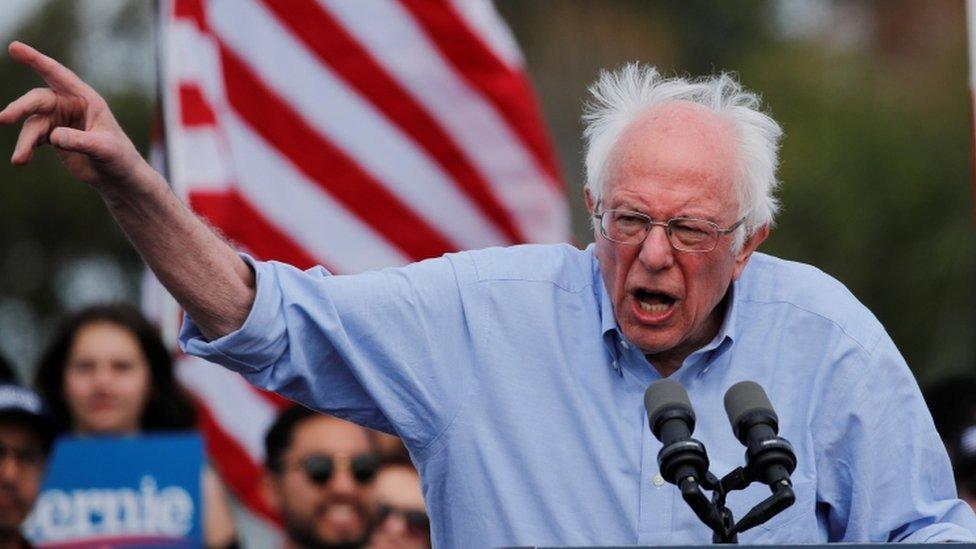
Bernie Sanders has warned Russia to "stay out of American elections"
Democratic presidential hopeful Bernie Sanders has condemned Russia for its reported attempts to help his campaign, telling it to "stay out of American elections".
Mr Sanders said on Friday that US officials had told him last month about Russian efforts to aid his campaign.
Speaking in Bakersfield, California, Mr Sanders said it was not clear how Russia intended to interfere.
But the Vermont senator, 78, said he strongly opposed any attempts to do so.
He denounced Russian President Vladimir Putin as an "autocratic thug" whose government has "used internet propaganda to sow division in our country".
"Let's be clear, the Russians want to undermine American democracy by dividing us up and, unlike the current president, I stand firmly against their efforts and any other foreign power that wants to interfere in our election," Mr Sanders said.
Mr Sanders, a self-styled democratic socialist, is currently considered the front-runner in the race to win the presidential nomination for the Democrats.
Facebook said it has not seen any evidence of Russian assistance to Mr Sanders' campaign.
Senior intelligence officials also believe Russia has been seeking to interfere in November's election with a view to helping President Trump win.
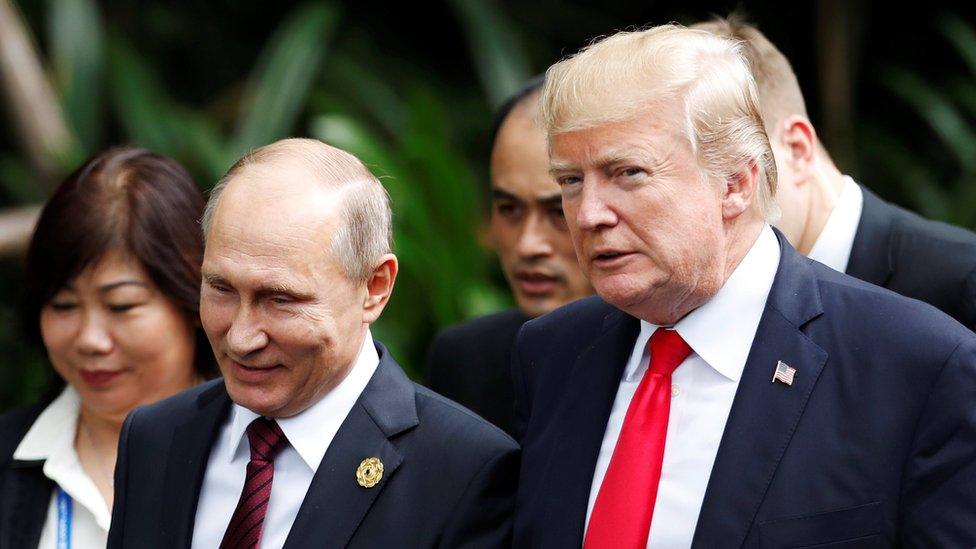
President Trump was reportedly angry about the election security briefing
Members of the House Intelligence Committee were told that Russia favoured Mr Trump at a closed-door briefing on 13 February.
President Trump, speaking at a Nevada campaign rally Friday, suggested the Russian meddling briefing was a "rumour" started by the Democrats.
"I see these phonies, the do-nothing Democrats, they said today that Putin wants to be sure that Trump gets elected. Here we go again," Mr Trump said.
What is the Trump-Russia controversy about?
US intelligence agencies concluded in 2016 that Russia used a strategy of cyber-attacks and fake news stories in an effort to skew the election against the Democratic candidate Hillary Clinton.
In 2017, former FBI director Robert Mueller was appointed as special counsel to lead a US justice department inquiry into whether Trump aides had colluded with Kremlin agents.
Mr Mueller submitted a 448-page report in 2019 that did not establish the president's campaign had conspired with Russia during the election, but it did suggest Mr Trump had obstructed the inquiry.
Mr Trump called the inquiry a "political witch hunt" and Russian President Vladimir Putin denied collusion.
The Mueller report - in 60 seconds
On Friday, the Kremlin denied allegations of election meddling. Spokesman Dmitry Peskov told reporters they were "paranoid announcements" that had "nothing to do with the truth", Reuters reported.
The Russian denial runs contrary to what acting Director of National Intelligence (DNI), Joseph Maguire, told Congress in the classified briefing to US lawmakers last week.
Mr Trump lambasted Mr Maguire for sharing the intelligence with Democratic lawmakers, sacking him a week after the briefing.
Mr Maguire was a favourite to be nominated for the permanent DNI post, the Washington Post said.
However, the paper said the president changed his mind when he found out about the briefing, and what he called the "disloyalty" of his staff.
The president announced this week that Mr Maguire would be replaced by Richard Grenell, the US ambassador to Germany and a Trump loyalist.
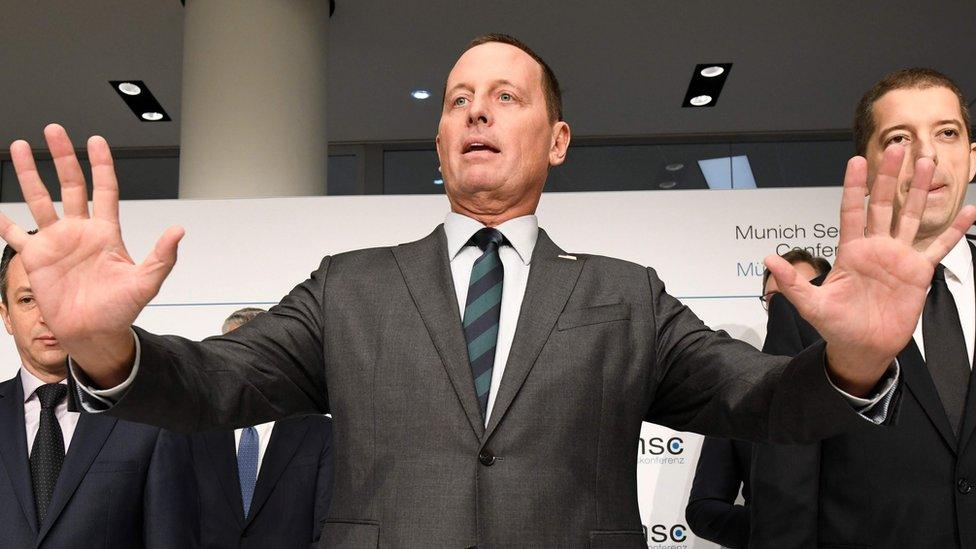
Richard Grenell, the US ambassador to Germany, was appointed the DNI this week
Two Trump administration officials told the New York Times that the replacement of Mr Maguire, so soon after the contentious briefing, was a coincidence.
Democrats criticised the president for appointing Mr Grenell, who has previously played down the extent of Russian interference in the last election, and has celebrated the rise of far-right politicians in Europe.
On Friday, the president tweeted that "four great candidates" were being considered for the permanent DNI role.
He told reporters a day earlier that congressman Doug Collins - who was an outspoken defender of Mr Trump during the impeachment inquiry - was among the possible nominees.
The Georgia Republican has said, however, he does not want the posting.
"This is not a job that interests me, at this time it's not one that I would accept because I'm running a Senate race down here in Georgia," Mr Collins told the Fox Business Network, external.
- Published20 February 2020
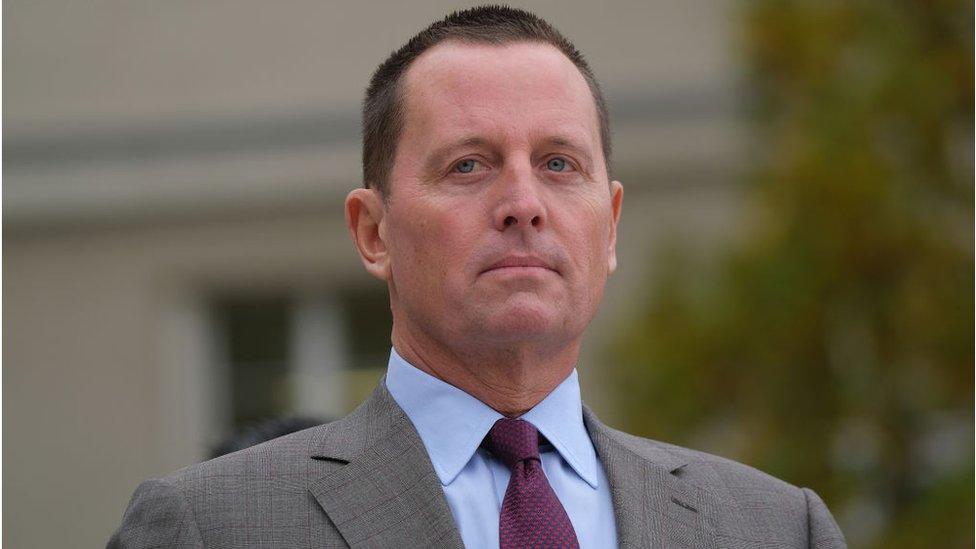
- Published20 February 2020
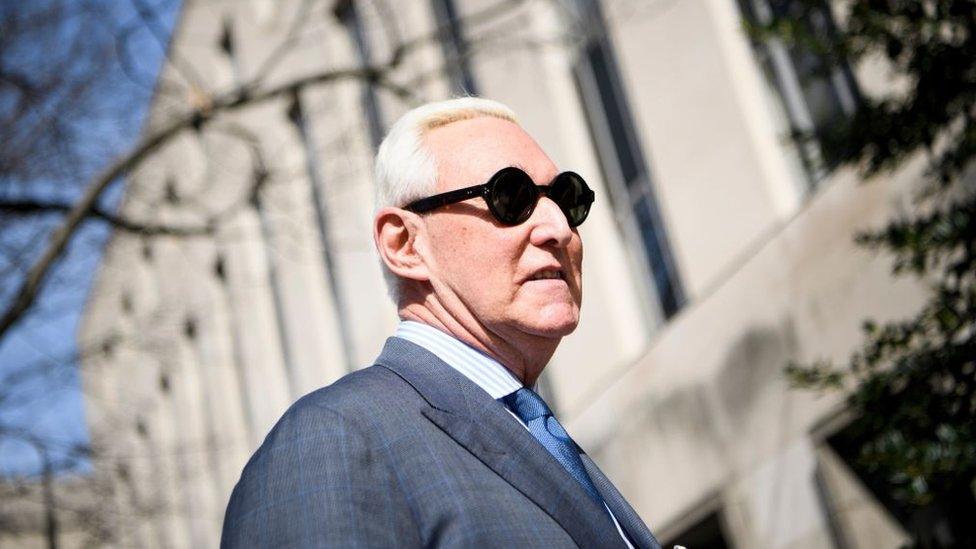
- Published20 February 2020
